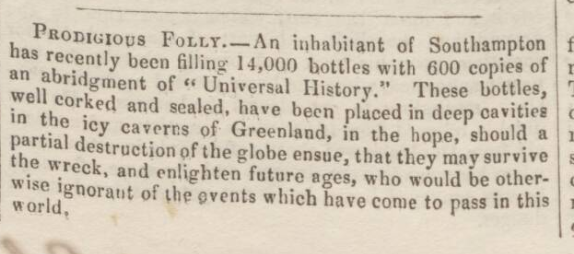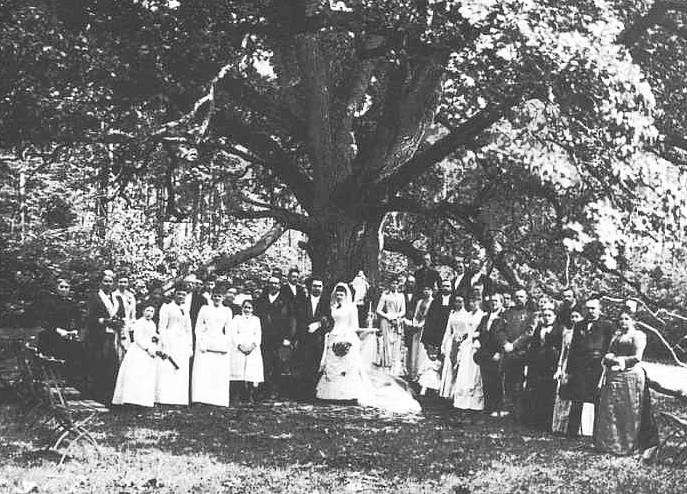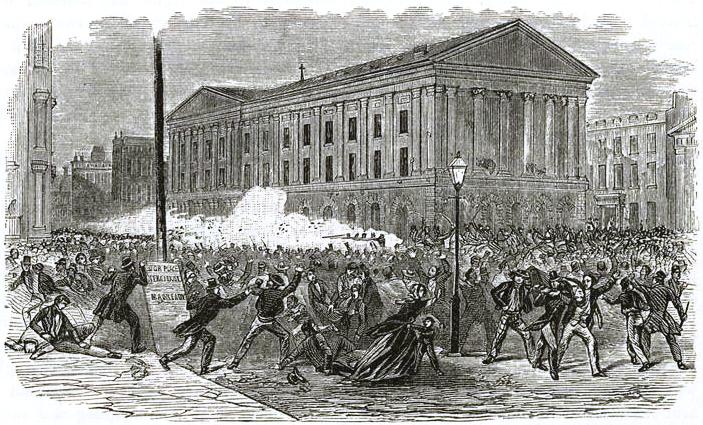Moscow programmer Ani Abakumova makes portraits by spanning circular hoops with lengths of colored thread.
A computer dictates the placement of the threads, but she produces each portrait by hand.
More at her Instagram page.
Moscow programmer Ani Abakumova makes portraits by spanning circular hoops with lengths of colored thread.
A computer dictates the placement of the threads, but she produces each portrait by hand.
More at her Instagram page.
It is not every maiden, in these prosaic days, who can summon the ‘tell-tale blood’ to her cheeks at will, or silently reveal by an opportune roseate flush, those inward feelings to which many young ladies experience such difficulty in giving verbal expression. But as the value of the blush, as a highly effective weapon in the feminine armory, is still universally recognized by the sex, although it would appear to have somewhat fallen into desuetude, French ingenuity has been at the pains of devising a mechanical appliance for the instantaneous production of a fine natural glow upon the cheek of beauty, no matter how constitutionally lymphatic or philosophically unemotional its proprietress may be. This thoughtful contrivance is called ‘The Ladies’ Blushing Bonnet,’ to the side ribbons of which — those usually tied under the fair wearer’s chin — are attached two tiny but powerful steel springs, ending in round pads, which are brought to bear upon the temporal arteries by the action of bowing the head, one exquisitely appropriate to modest embarrassment, and by artificially forcing blood into the cheeks cause them to be suffused with ‘the crimson hue of shame’ at a moment’s notice. Should these ingenious head coverings become the fashion among girls of the period, it will behoove ‘young men about to marry’ to take a sly peep behind the bonnet-strings of their blushing charmers immediately after proposing, in order to satisfy themselves that the heightened color, by them interpreted as an involuntary admission of reciprocated affection, is not due to the agency of a carefully adjusted ‘blushing bonnet.’
— London Telegraph, via Robinson [Ill.] Constitution, Dec. 1, 1880

Each of the 36 numbers in this table is the sum of the numbers at the head of its column and at the left of its row. For example, 3 = 2 + 1 and 13 = 5 + 8. The six bold numbers have been chosen so that each of them falls in a different row and a different column. The underlined numbers were chosen in the same way. But each of these two sextets produces the same total: 16 + 6 + 5 + 14 + 8 + 8 = 8 + 10 + 7 + 8 + 10 + 14 = 57. In fact, any six numbers chosen in this way will produce the total 57. Why is this?

From the Stirling [Scotland] Observer, April 18, 1844. Maybe, in the long run, that will be the last year of recorded history!
(Thanks, Jack.)

In 1890, a Leipzig chocolate maker named Wilhelm fell in love with a girl named Minna. Her father disapproved of the match, so the two exchanged letters by leaving them in the trunk of an oak tree in the Dodauer forest. Minna’s father eventually relented, and the two were wed under the tree in 1891.
Since then the hole has become a public letter box for people seeking romantic partners. Anyone can send a letter to be delivered to the tree, and anyone can read, take, and answer any letter. At least five, and reportedly more than 100, marriages have been brought about in this way.
“There’s something so magical and romantic about it,” ex-postman Karl-Heinz Martens told the BBC in 2018. “On the internet, facts and questions match people, but at the tree, it’s a beautiful coincidence — like fate.” Here’s the address:
Bräutigamseiche
Dodauer Forst
23701 Eutin
Germany
Good luck!

During a 1968 visit with the Pope, William D. Borders, bishop of the Catholic Diocese of Orlando, Florida, observed that arguably he was now bishop of the moon.
According to the 1917 Code of Canon Law, which was in force at the time, any newly discovered territory fell under the jurisdiction of the diocese from which the discovering expedition had left — and Borders’ diocese included Brevard County, home of Cape Canaveral.
Arguably, then, Borders’ diocese encompassed 14.5 million square miles. The pontiff’s reaction is not recorded.
(Thanks, Jon.)

The second-bloodiest riot in the history of New York was touched off by a dispute between two Shakespearean actors. Their supporters started a brawl that killed as many as 30 people and changed the institution of theater in American society. In this week’s episode of the Futility Closet podcast we’ll tell the story of the Astor Place riot, “one of the strangest episodes in dramatic history.”
We’ll also fertilize a forest and puzzle over some left-handed light bulbs.
Japanese racehorse Haru Urara became “the shining star of losers everywhere” when she racked up a record of 0 wins and 113 losses in the early 2000s. In the face of a national recession, Prime Minister Junichiro Koizumi said, “The horse is a good example of not giving up in the face of defeat.” For the horse’s 106th race, Japan’s premier jockey, Yutaka Take, was brought in to ride her. She placed 10th out of 11.
British Thoroughbred Quixall Crossett ran to 103 consecutive defeats in the 1990s. Assistant trainer Geoff Sanderson said, “He got the most tremendous cheer you’ve ever heard on a race course. … The horse doesn’t know he gets beat because he gets a bigger cheer than the winner.”
American Thoroughbred Zippy Chippy retired in 2010 with a lifetime record of 0 wins in 100 starts, though he did once outrun a minor league baseball player. Racing historian Tom Gilcoyne said the horse “hasn’t done anything to harm the sport. But it’s a little bit like looking at the recorded performances of all horse races through the wrong end of the telescope.”
Rhymes for unrhymable words, by Willard R. Espy:
Month
It is unth-
inkable to find
A rhyme for month
Except this special kind.
Orange
The four eng-
ineers
Wore orange
Brassieres.
Oblige
Love’s lost its glow?
No need to lie; j-
ust tell me “Go!”
And I’ll oblige.

On a regular 8 × 8 chessboard, a wandering knight can visit each square once and then return to his starting square. Show that he can’t do this on an m × n board if m and n are both odd.